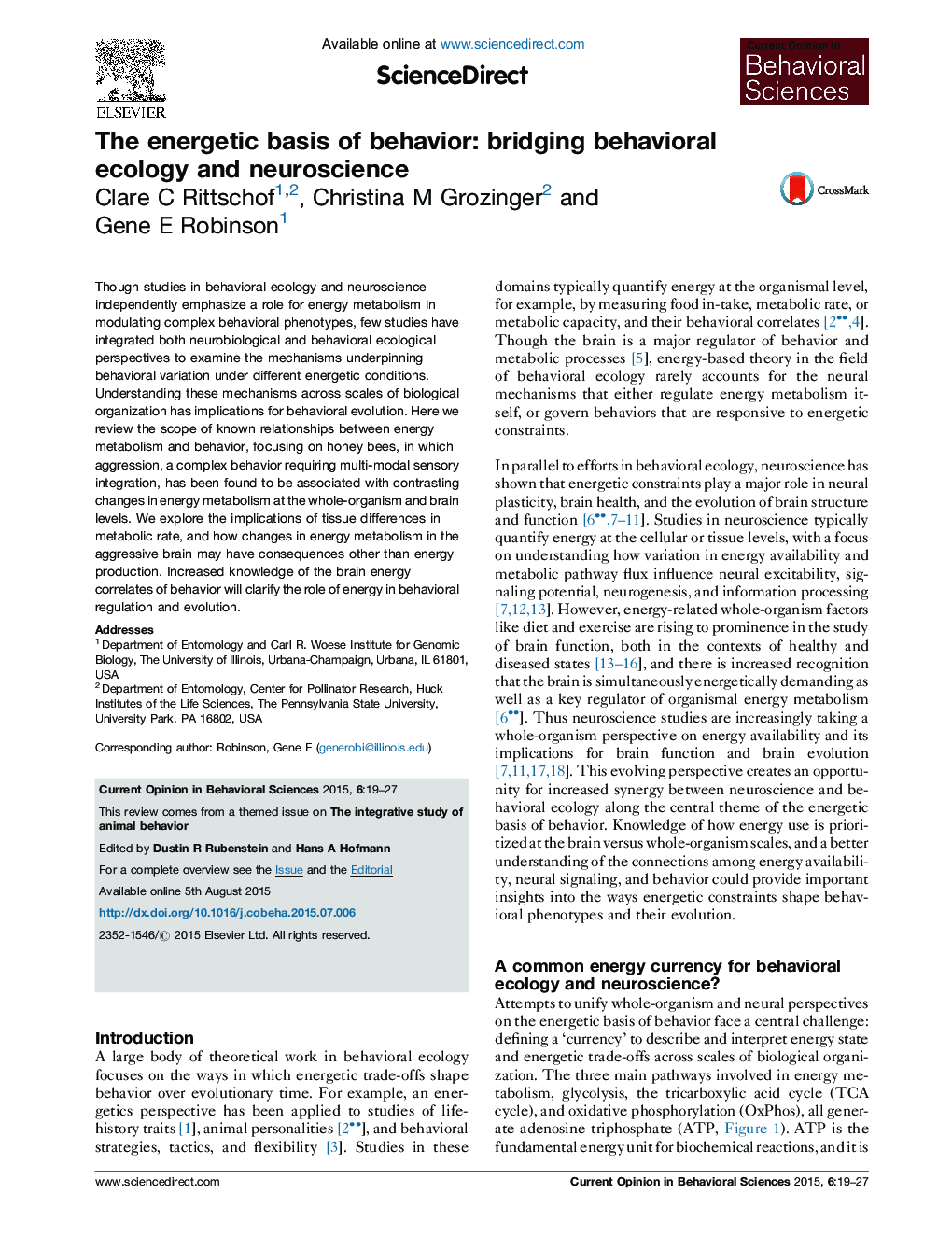| Article ID | Journal | Published Year | Pages | File Type |
|---|---|---|---|---|
| 6260726 | Current Opinion in Behavioral Sciences | 2015 | 9 Pages |
â¢Theory on energetic constraints in behavioral ecology focuses on organism-level processes.â¢Metabolic correlates of behavior span multiple levels of organization.â¢Brain energy state influences neuronal firing patterns and therefore behavior.â¢Energy metabolic pathways produce more than just ATP.â¢Studying the energetic basis of behavior requires an integrative approach.
Though studies in behavioral ecology and neuroscience independently emphasize a role for energy metabolism in modulating complex behavioral phenotypes, few studies have integrated both neurobiological and behavioral ecological perspectives to examine the mechanisms underpinning behavioral variation under different energetic conditions. Understanding these mechanisms across scales of biological organization has implications for behavioral evolution. Here we review the scope of known relationships between energy metabolism and behavior, focusing on honey bees, in which aggression, a complex behavior requiring multi-modal sensory integration, has been found to be associated with contrasting changes in energy metabolism at the whole-organism and brain levels. We explore the implications of tissue differences in metabolic rate, and how changes in energy metabolism in the aggressive brain may have consequences other than energy production. Increased knowledge of the brain energy correlates of behavior will clarify the role of energy in behavioral regulation and evolution.
Graphical abstractDownload high-res image (190KB)Download full-size image
